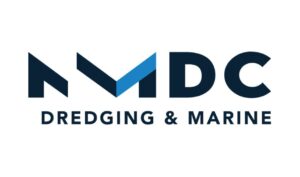In late 2004 a PIANC-IAPH Joint Working group (WG) was established, on an honorary basis, to study the problems faced by the ports located in small islands. The objective was to study the specific problems facing ports located in small islands for serving international and domestic trade and passengers plus supporting fishing activities.
The Wg selected thirty-seven island countries and territories, most of them belonging to SIDS except four, to conduct a survey to assess the situation facing those ports. The features of smallness, small populations and remoteness in the Pacific Ocean led the WG to focus on these islands. A six-page questionnaire was prepared and distributed by email and/or fax in English, French and Portuguese during July/August 2005. In some cases several bodies were contacted in the same country and personal contacts were also made to secure replies. After several reminders which extended the Survey until September-October of the same year, replies were received from the following countries: Dominica, Grenada, French Polynesia, Maldives, Mauritius, Samoa and Tonga.
The analysis of the replies was carried out during 2006 but this report does not identify specific respondents to maintain confidentiality. The WG complemented the information provided by answers to the questionnaire from other webbased sources listed in the references, notably the 2004 Pacific Regional Transport Study prepared by the Study Team for Forum Island Countries – a group that embraces small island states in the Pacific Ocean. A simple financial model was prepared to assess the feasibility for port authorities in small islands of being self-sustaining and able to provide basic infrastructure.
The WG concluded that small island countries and territories in the Pacific Ocean, which are also prone to environmental disasters (i.e. hurricanes, tsunamis, rising sea levels), cannot develop basic port infrastructure by themselves and this should generally have to come from grants and/or loans. This might be a reflection of their very small export base and reliance on remittances from expatriates and other sources to maintain populations in these islands. However, tariffs should provide for maintenance and operation of the infrastructure. lean management and private sector involvement should contribute to long-term financial sustainability with reasonable tariffs levels for users. Small island countries and territories located elsewhere and, either associated to larger countries or political entities or having special relationships with them might be able to provide infrastructure through loans from development banks. larger islands would likely provide such infrastructure through public/private partnerships involving global operators.
The WG recommends that PIANC/IAPH should seek collaboration and coordination with UN specialized agencies (i.e. UNCTAD and UN ESCAP), that are making interventions on small islands which involve port issues. PIANC should encourage ports to implement a port data bank to allow them to more effectively control and manage their ports and a pilot scheme (i.e. in Maldives) for collecting reliable data to measure climate change and the costs of providing protection to maintain port activities. Finally, IAPH could provide assistance in port management and human resource development through disseminating relevant information and inviting to its meetings to help strengthen port institutions in small islands.

















